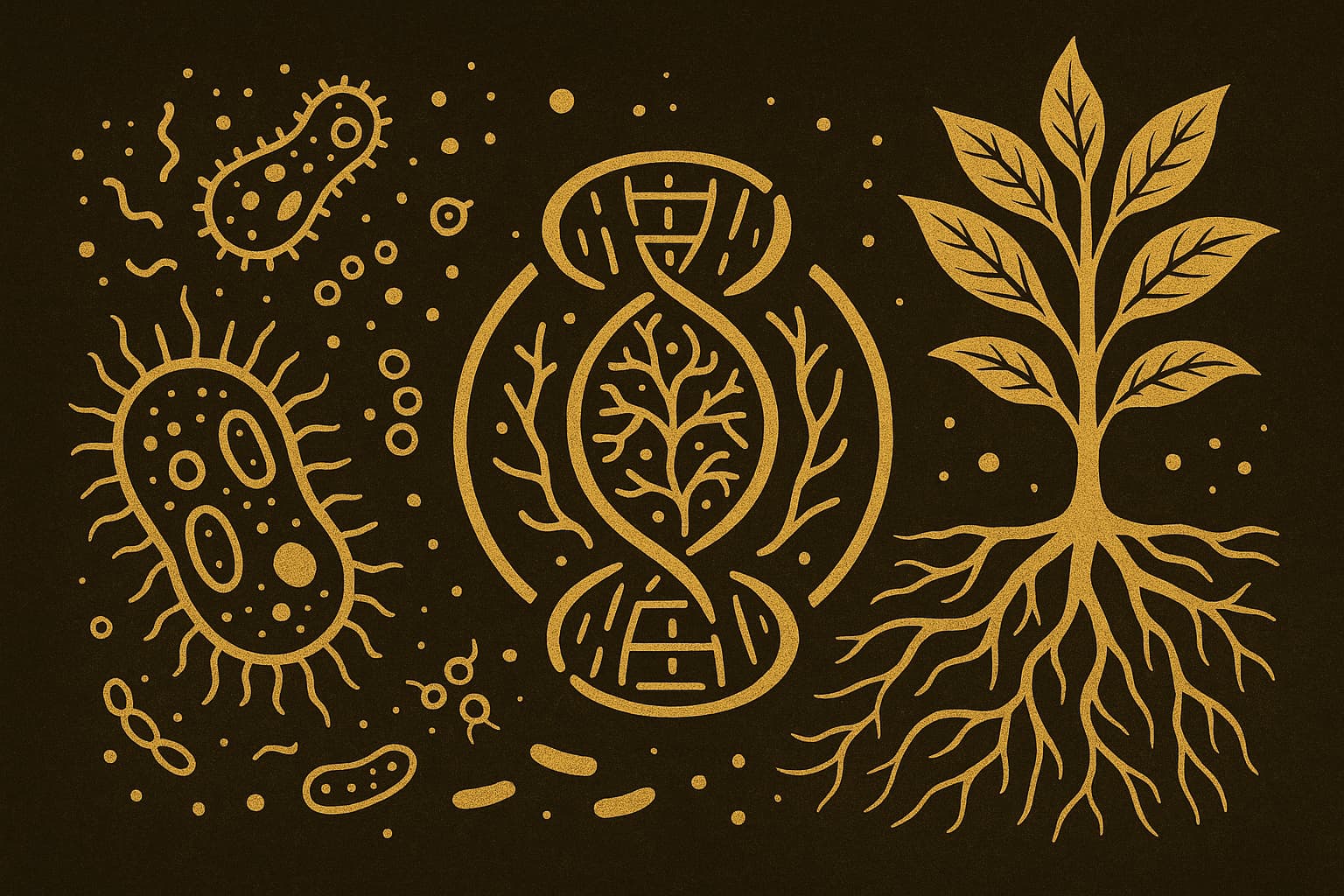
Field Microbiology & Soil Life explores the hidden networks of microorganisms that drive nutrient cycling, disease suppression, and overall ecosystem health in outdoor cannabis cultivation. Beneath the surface, complex microbial communities form symbiotic relationships with plant roots, influencing everything from nutrient availability to terpene expression.
Understanding soil biology requires integrating laboratory analysis with in-field observation. While lab tests can reveal microbial diversity and functional potential, direct field assessments—like observing soil structure, aggregation, and biological activity—offer critical insights into the dynamic interactions unfolding in real time.
This capsule introduces the core principles of soil microbial ecology, practical methods for monitoring biological indicators, and strategies to foster thriving living soils. By aligning cultivation practices with the needs of beneficial microbes, growers can unlock a resilient foundation for consistently vigorous and expressive cannabis plants.
The philosophy behind Field Microbiology & Soil Life is grounded in the recognition that soil is not merely a substrate but a living ecosystem teeming with invisible allies. In outdoor cannabis cultivation, these microbial communities are the foundation of plant health, nutrient cycling, and adaptive resilience to environmental stress.
By understanding and supporting the diverse interactions between bacteria, fungi, protozoa, and nematodes, growers can move beyond input-driven management toward regenerative practices that empower natural processes to sustain fertility and vitality over time.
🦠 Microbial Diversity as Strength
Encourage a wide spectrum of bacteria and fungi to increase nutrient solubilization, pathogen suppression, and metabolic resilience.
🍄 Mycorrhizal Symbiosis
Foster relationships between roots and mycorrhizal fungi to enhance phosphorus uptake, water efficiency, and plant vigor.
🔬 Indicator Species Observation
Use earthworms, nematodes, and fungal networks as field indicators of soil biological quality and balance.
🌿 Minimal Soil Disturbance
Reduce tillage and compaction to protect delicate soil microhabitats and sustain long-term biological activity.
✅ Field Microbial Sampling
Collect composite soil samples for lab assays measuring microbial biomass, enzyme activity, and community composition.
✅ On-site Bioassays
Use field tools like Solvita CO₂ tests and microscopy to monitor respiration, fungal dominance, and living root interactions.
✅ Organic Amendments Application
Incorporate compost, biochar, and inoculants to build organic matter and inoculate beneficial organisms.
✅ Cover Cropping and Mulching
Establish diverse cover crops and organic mulches to feed soil food webs and protect microclimates at the soil surface.
Cultivators who integrate microbial stewardship report improved nutrient cycling, greater disease resistance, and more stable yields across seasons. By aligning cultural practices with the biological rhythms of the soil ecosystem, growers create a dynamic foundation that sustains productivity and amplifies the expression of each cultivar’s genetic potential.
van der Heijden M.G.A., et al. (2008). The unseen majority: soil microbes as drivers of plant diversity and productivity. Ecology Letters, 11(3), 296–310.
Lal R. (2004). Soil carbon sequestration impacts on global climate change and food security. Science, 304(5677), 1623–1627.
Lehman R.M., et al. (2015). Understanding and enhancing soil biological health: the solution for reversing soil degradation. Sustainability, 7(1), 988–1027.
Our Outdoor Cultivation consulting empowers growers to harness the full potential of natural environmental conditions while mitigating variability and risk. Services include site selection, cultivar optimization, regenerative soil management, and data-driven planning to maximize yield and cannabinoid quality. We help producers integrate modern agronomic tools with traditional knowledge for sustainable outdoor success.
Contact for inquiries:
📩 nabil.khayat@cannabisdatahub.com